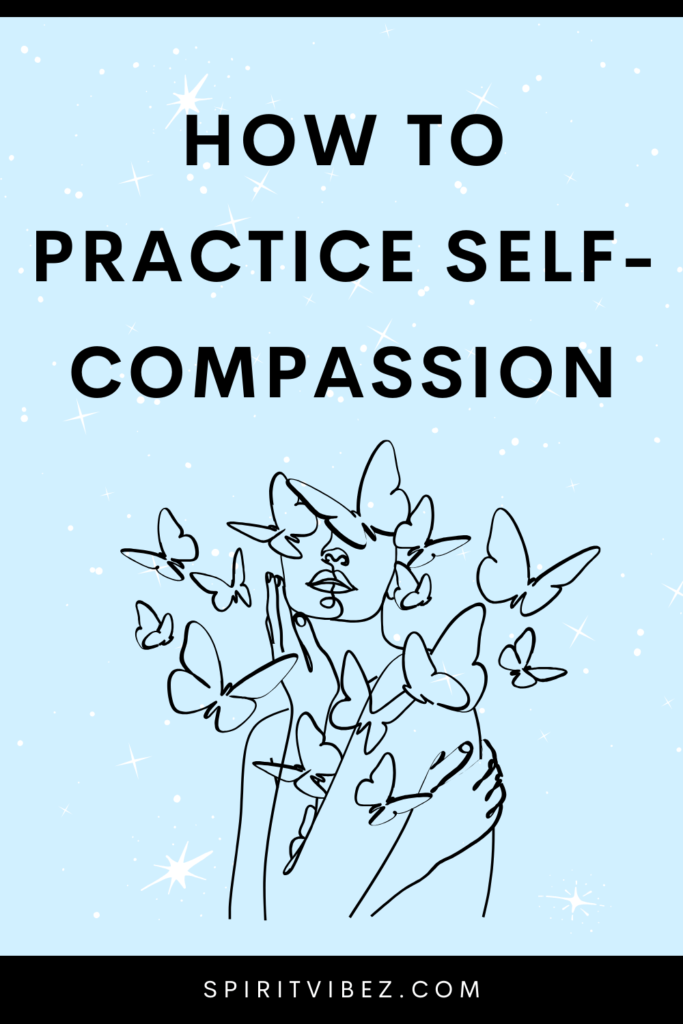Last Updated on May 24, 2024

In a world that often glorifies relentless self-criticism and the pursuit of perfection, it’s easy to lose sight of the importance of treating ourselves with kindness.
Enter self-compassion: a transformative practice that invites us to embrace our flaws and nurture our well-being.
Imagine a life where your inner voice is a source of comfort rather than condemnation, where you face challenges with grace instead of guilt.
This isn’t just a fantasy—it’s the essence of self-compassion.
In this article, you’ll discover what self-compassion truly means and find practical tips to cultivate this powerful tool, helping you become your own greatest ally in the journey of life.
What is self-compassion?
Self-compassion is the practice of treating yourself with the same kindness, understanding, and care that one would offer to a close friend.
It involves acknowledging your own suffering, failures, and imperfections without judgment, and responding to these experiences with empathy and support.
Developed by Dr. Kristin Neff, self-compassion is composed of three core components:
1. Self-kindness: This involves being gentle and understanding with yourself when you encounter pain or failure, rather than being harshly self-critical.
Instead of berating yourself for your shortcomings, you should approach your mistakes and struggles with warmth and patience.
2. Common humanity: Recognizing that suffering and personal inadequacy are part of the shared human experience.
Rather than feeling isolated by your imperfections, you understand that everyone goes through similar challenges and failures, which helps foster a sense of connectedness with others.
3. Mindfulness: This entails being aware of your thoughts and feelings without suppressing or exaggerating them.
Mindfulness helps you maintain a balanced perspective, preventing you from becoming overly identified with negative emotions or experiences.
Practicing self-compassion can lead to greater emotional resilience, improved mental health, and a more positive outlook on life.
It encourages you to treat yourself with the same respect and care that you would naturally extend to others, fostering a healthier and more supportive relationship with yourself.
How to practice self-compassion
Practicing self-compassion involves adopting new habits and perspectives that nurture kindness towards yourself.
Here are some self-compassion exercises you can try out:
1. Practice mindful awareness
Mindfulness meditation: Spend a few minutes each day practicing mindfulness meditation. Focus on your breath and observe your thoughts and feelings without judgment.
Body scan: Perform a body scan meditation to become aware of any areas of tension or discomfort in your body, and approach these sensations with curiosity and kindness.
2. Self-kindness techniques
Positive self-talk: Replace self-critical thoughts with kind and supportive ones. For example, if you make a mistake, instead of thinking “I’m so stupid,” try “It’s okay to make mistakes; I’m learning and growing.”
Daily affirmations: Use positive affirmations to reinforce your self-worth. Phrases like “I am enough” or “I deserve love and compassion” can help shift your mindset.
More positive affirmations:
- 35 affirmations to raise your vibration
- 30 affirmations for depression
- 24 affirmations for manifestation
- 30 affirmations for emotional healing
- 30 affirmations for self-love & confidence
- 25 affirmations for anxiety relief
- 30 affirmations for healing your body
- 30 affirmations for inner child healing
3. Embrace common humanity
Shared experiences: Remind yourself that everyone struggles and makes mistakes. When you face a challenge, think about how others might be experiencing similar difficulties.
Connect with others: Talk to friends, join support groups, or engage in communities where you can share your experiences and hear from others.
4. Self-care practices
Regular breaks: Take regular breaks throughout your day to rest and recharge. Use this time to do something you enjoy, like reading a book, taking a walk, or listening to music.
Healthy habits: Prioritize sleep, nutrition, and exercise. Taking care of your physical health is a fundamental act of self-compassion.
See also: 15 self-care tips for your mind, body & spirit
5. Forgiveness and letting go
Self-forgiveness: Reflect on past mistakes and forgive yourself. Write a letter to yourself expressing understanding and compassion for past actions.
Letting go rituals: Create rituals to let go of guilt or shame, such as writing down your regrets and then tearing up the paper as a symbolic release.
6. Setting boundaries
Say no when needed: Learn to say no to commitments that overwhelm you or do not align with your priorities. This protects your time and energy.
Prioritize your needs: Make decisions that prioritize your well-being, even if it means setting limits with others.
7. Gratitude practice
Gratitude journal: Keep a gratitude journal and write down three things you’re grateful for each day. This shifts your focus from what’s wrong to what’s right in your life.
See also: 50 gratitude journal prompts
Appreciate yourself: Regularly acknowledge your own achievements and qualities, no matter how small they may seem.
8. Seek professional help if needed
Therapy: Consider talking to a therapist or counselor, especially if you struggle with deep-seated self-criticism or emotional pain. Professional guidance can provide personalized strategies and support.
By incorporating these practices into your life, you can develop a habit of self-compassion, leading to greater emotional resilience, improved mental health, and a more fulfilling relationship with yourself.
If you enjoyed this article on self-compassion, I would be grateful if you shared it on Twitter, Facebook, or Pinterest! Thank you❤️
📌 PIN THIS POST FOR LATER


Hello, my name is Sara and I am the founder of Spiritvibez, I’m here to guide you on your spiritual journey toward healing, growth, and self-discovery. I believe that true transformation occurs when the mind, body, and spirit are aligned and working in harmony. Through Spiritvibez, I hope to inspire and empower you to deepen your spiritual practice, embrace your authentic self, and begin living your best life.
